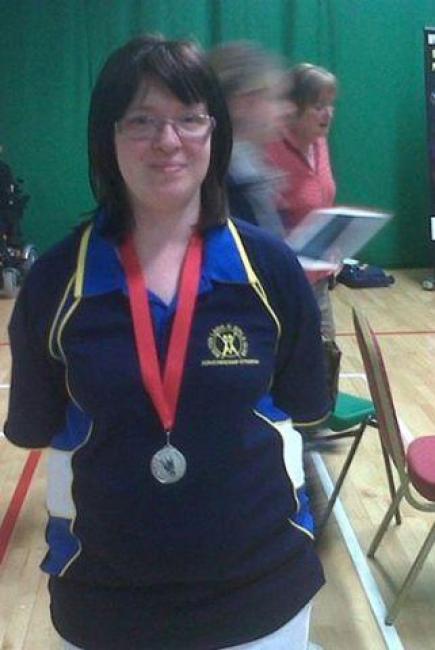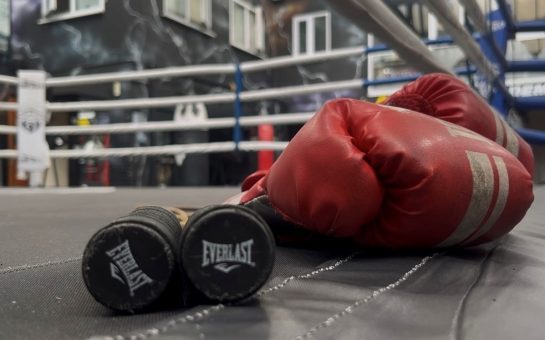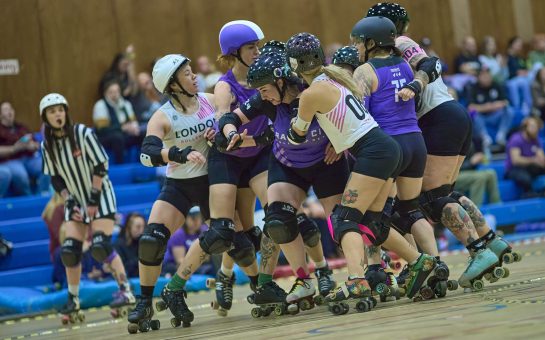A Bolton Olympic athlete unexpectedly died on a hospital operating table while undergoing a routine operation to ensure she couldn’t have any children – after suffering an ‘extraordinarily rare’ reaction.
Badminton player Bianca Atherton, 27, who was due to represent Great Britain in this year’s Special Olympics, had a genetic disability and did not want babies as she feared they would be born with her condition.
But during sterilisation surgery she suffered a rare response to her treatment during which her abdomen was inflated with gas, causing her heart rate to drop with fatal consequences.
She died as doctors at Bolton Royal Hospital in Greater Manchester attempted to revive her.
An inquest heard that the risk of death in ‘laparoscopic’ sterilisation was one in 100,000 and that the procedure was ‘safer than driving on the motorway’.
Bianca, from Horwich and who had a chromosomal abnormality, had studied at Rivington and Blackrod High School in Bolton, a mainstream school, before going to a college that catered to students with learning difficulties.
There she became involved with volunteering and was actively looking for paid work when she was introduced to badminton.
She was one of 49 athletes with special needs selected to represent Great Britain at the 2014 Special Olympics European Summer Games in Antwerp this September and trained every week at the Bolton Lads & Girls Club.
She competed at the 4 Nations Para-Badminton Series events around the UK, as well as at the 2013 Special Olympics GB National Summer Games in Bath, where she won a silver and a bronze medal and had a steady boyfriend for five years.

TRAGIC: Bianca suffered an ‘extraordinarily rare’ reaction during surgery (©Facebook with thanks)
But the hearing in Bolton was told Bianca did not want children and had several consultations with doctors to discuss any possible complications that could arise from the surgery.
Risk of death was not mentioned to her as it was so rare, the hearing was told.
In a statement, her mother Catherine said: “Bianca and [her boyfriend] Ashley had their ups and downs but they always sorted it out.
“She had done a lot of research on the subject of sterilisation before the procedure and insisted she wanted it done. She was not aware of the risk of death and there was no mention that this was a risk.”
On April 16, she dropped Bianca off at hospital and although she had asked to stay with her daughter she was told she couldn’t and so drove home.
Mrs Atherton added: “Once I got in the car I felt uneasy. I phoned a friend who is a nurse and she assured me they would be good with Bianca as they are trained.
“Bianca called home at 4pm and she seemed a bit bored but her normal self. I told her ‘good luck.’ She said not to say that as it made her nervous.
“At 5.10pm I received a call from the matron and she said Bianca had had a reaction and could I get there as soon as possible.
“We arrived and were shown to a room and told she had had a reaction and her heart had stopped but they had got it going but it was very weak.”
During the surgery Bianca suffered a common reaction to the procedure known as the ‘vasovagal response’ in which her abdomen was inflated with gas causing her heart rate to drop.

GOT THE X FACTOR: The badminton star was due to take part in the Special Olympics this year (©Facebook with thanks)
The inquest heard that most patients’ heart rate rises after medication is administered but Bianca’s heart continued to drop before finally stopping – an ‘extremely rare’ event none of the doctors had ever experienced.
Mrs Atherton said: “I asked to see her but the staff were still working on her and that I could as soon as they stabilised her.
“One of the doctors told me as soon as they had put the gas in to inflate her stomach Bianca’s heart rate went from 78 to 20 and then it stopped.”
The doctors pulled out the equipment used to inflate the stomach and immediately started CPR and tried to revive her, but her heart had not been beating for 20 minutes.
Her mother recalled: “We were asked at this point to contact any family we needed to. Sadly our beautiful daughter passed away before they arrived with her dad and I in the room.
“As a family we are devastated by the loss of our beautiful daughter, sister and granddaughter who would make us laugh smile and feel so proud of her.”
Dr Sangeeta Das, consultant in obstetrics and gynaecology at the Royal Bolton Hospital said: “Bianca knew about her condition and had been told it would pass down to her offspring and she didn’t in any circumstances want it to be passed on.
“She was not in a position to take care of children by herself and she didn’t want her mum looking after her and her children. She was clear in her mind. She had made an intelligent thought through decision.
“The risk of death on laparoscopic surgery is extremely rare in a minor procedure. There is a risk of death with any surgery but the risk was so small here we did not discuss it. I think it is around one in 100,000 for laparoscopic surgery.”
Dr Emma Wheatley, an anaesthetist who investigates unexpected deaths said: “I myself have never seen a patient who has not recovered from the vasovagal response. I have spoken to cardiologists who have never seen it. It is safer than driving on the motorway.”
Recording a narrative verdict Bolton coroner, Jennifer Leeming said: “Bianca came over as a charming, intelligent thoughtful person. Her achievements that we heard about given her difficulties demand the most profound respect.”
In a statement Bianca’s coach David Gillespie said: “Bianca was a dedicated, enthusiastic and eloquent athlete, who trained regularly, always enjoyed playing badminton and was looking forward to competing at the 2014 European Summer Games.”
Story via Cavendish Press
Images courtesy of Facebook, with thanks



